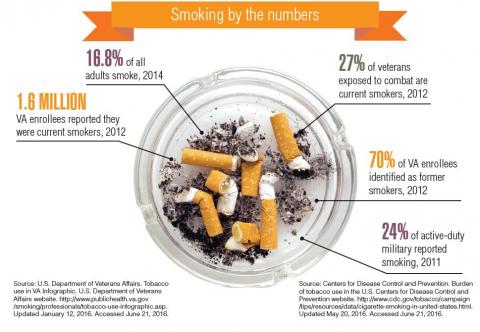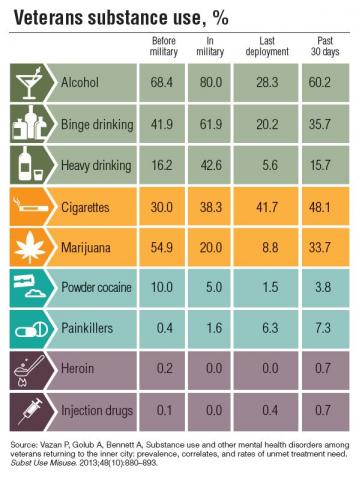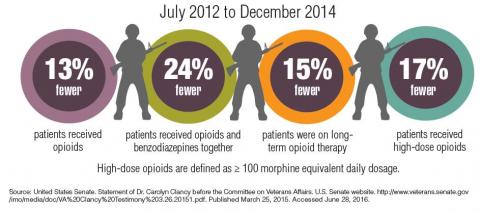The dangers of substance abuse have been well known for many years. Despite these known risks, rates of alcohol and drug abuse remain high especially among active-duty and veteran populations. A 2008 DoD survey and a 2012 Institute of Medicine report suggest that substance abuse continues to grow in the military, showing a rising level of prescription drug abuse and binge drinking.
The risks related to opioid abuse are particularly significant. According to a 2011 study that looked at poisoning, VHA patients were nearly twice as likely to accidently die of poisoning compared with the general population. Cocaine and opioids were the most frequently cited agents in the study.
There is some evidence that prevention can reverse some of these trends. Although active-duty service members continue to smoke at rates much higher than that of the general population, those rates are falling, a result of the campaign to reduce smoking in the U.S. The Surgeon General and the National Prevention Council have renewed their focus on prevention for substance abuse and the important role of health care providers. According to the National Prevention Strategy, “preventing drug abuse and excessive alcohol use improves quality of life, academic performance, workplace productivity, and military preparedness; reduces crime and criminal justice expenses; reduces motor vehicle crashes and fatalities; and lowers health care costs for acute and chronic conditions.”




